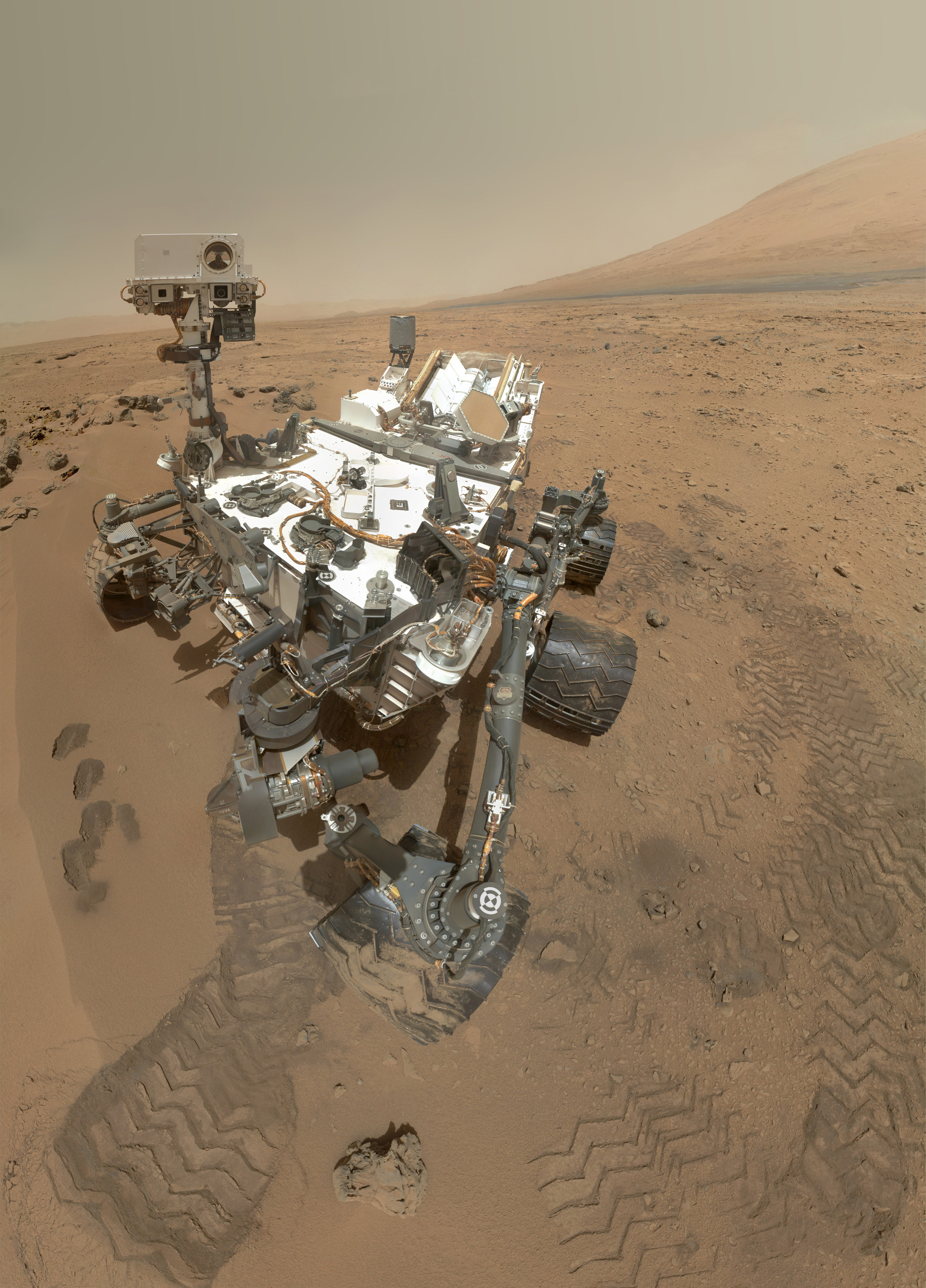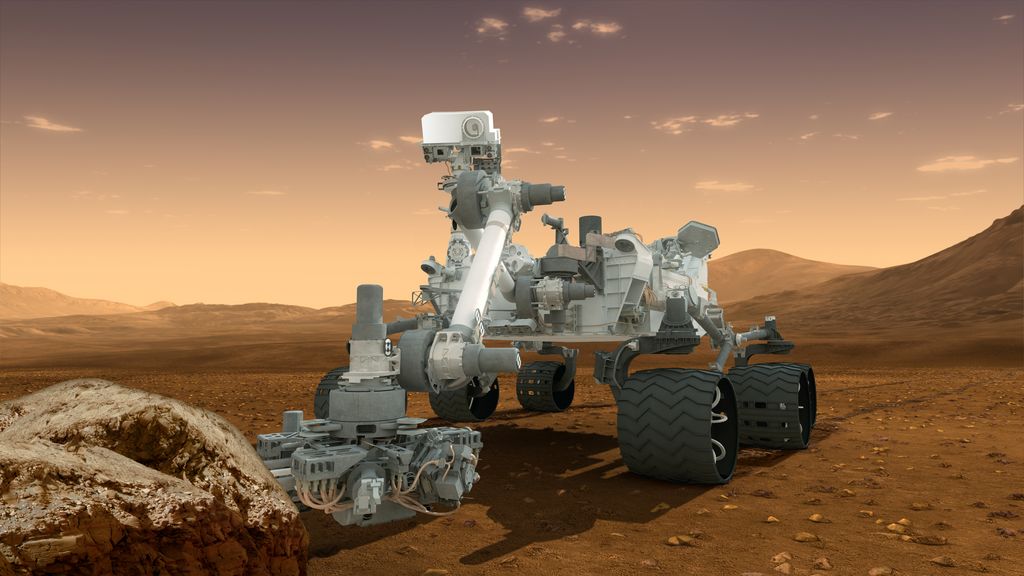
This story was updated at 2:25 p.m. Eastern time.
NASA's Mars rover Curiosity has apparently made a discovery "for the history books," but we'll have to wait a few weeks to learn what the new Red Planet find may be, media reports suggest.
The discovery was made by Curiosity's Sample Analysis at Mars instrument, NPR reported today (Nov. 20). SAM is the rover's onboard chemistry lab, and it's capable of identifying organic compounds — the carbon-containing building blocks of life as we know it.
SAM apparently spotted something interesting in a soil sample Curiosity's huge robotic arm delivered to the instrument recently.
"This data is gonna be one for the history books," Curiosity chief scientist John Grotzinger, of Caltech in Pasadena, told NPR. "It's looking really good."
The rover team won't be ready to announce just what SAM found for several weeks, NPR reported, as scientists want to check and double-check the results. Indeed, Grotzinger confirmed to SPACE.com that the news will come out at the fall meeting of the American Geophysical Union, which takes place Dec. 3-7 in San Francisco.
The $2.5 billion Curiosity rover landed inside Mars' huge Gale Crater on Aug. 5, kicking off a two-year mission to determine if Mars has ever been capable of supporting microbial life.
Get the Space.com Newsletter
Breaking space news, the latest updates on rocket launches, skywatching events and more!
The car-size robot carries 10 different instruments to aid in its quest, but SAM is the rover's heart, taking up more than half of its science payload by weight.
In addition to analyzing soil samples, SAM also takes the measure of Red Planet air. Many scientists are keen to see if Curiosity detects any methane, which is produced by many lifeforms here on Earth. A SAM analysis of Curiosity's first few sniffs found no definitive trace of the gas in the Martian atmosphere, but the rover will keep looking.
Curiosity began driving again Friday (Nov. 16) after spending six weeks testing its soil-scooping gear at a site called "Rocknest." The rover will soon try out its rock-boring drill for the first time on the Red Planet, scientists have said.
Follow SPACE.com senior writer Mike Wall on Twitter @michaeldwall or SPACE.com @Spacedotcom. We're also on Facebook and Google+.

Join our Space Forums to keep talking space on the latest missions, night sky and more! And if you have a news tip, correction or comment, let us know at: community@space.com.

Michael Wall is a Senior Space Writer with Space.com and joined the team in 2010. He primarily covers exoplanets, spaceflight and military space, but has been known to dabble in the space art beat. His book about the search for alien life, "Out There," was published on Nov. 13, 2018. Before becoming a science writer, Michael worked as a herpetologist and wildlife biologist. He has a Ph.D. in evolutionary biology from the University of Sydney, Australia, a bachelor's degree from the University of Arizona, and a graduate certificate in science writing from the University of California, Santa Cruz. To find out what his latest project is, you can follow Michael on Twitter.









